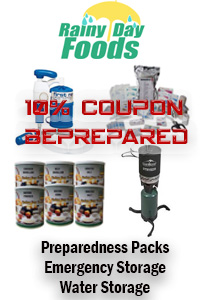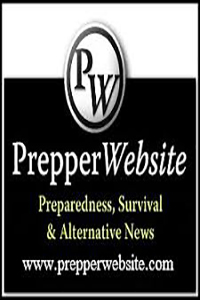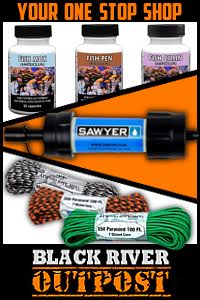I spent time out at the range this weekend and trolling around in a few gun stores, picking over products I probably already have and don’t need or want and still don’t need. There were lots of other people out there as well and through general observation I noticed just how many were completely unfamiliar with firearms. People out at the range who appeared to be shooting for the very first time (there were plenty of them) or people asking questions in the gun stores I visited which could be interpreted as: “please charge me as much as possible for this gun, I have no idea what I’m looking for.” Even with the popularity of gun ownership rising that still doesn’t mean that people are familiar with a solid process on how to select a firearm or that they know what to do with it (or how to employ it) after the initial purchase. What follows are some basics which will help you to properly select a firearm, even if it is not your first one, and hopefully ensure that you not only know how to use it but stay safe doing so.
Step 1: What will you use it for?
Hunting, target shooting, self defense, home defense, or concealed carry, maybe a combination of some of those? You wouldn’t buy a bolt action single shot hunting rifle to keep by your bedside in your apartment for protection, just like you wouldn’t take a snub nose 38 special out on African Safari. Deciding what you will use your gun for will really help narrow down your list.
Step 2: Know the law.
You want a handgun for personal defense, or an assault rifle to take to the range so you can make swiss cheese out of watermelons and tin cans. Are you even allowed to own one of these guns in your state? It’s on you to do your own research but here are a couple links which can get you started. Gun Laws by State, HandgunLaw.us, and some info on the NRA-ILA website. You always want to do your own research, because the “well the guy at the gun store told me” or “I read on this blog once” excuses won’t cut it.
Step 3: Take a course (BEFORE buying).
You are at the gun shop and that 1911 or Glock feels super sweet and looks even better in your hand. You’ve never shot it, but you’ll just get used to it right? WRONG. Take a course on the basics of pistol or rifle work from a place that will allow you to use their guns, or borrow one from a friend, or rent one. My wife did this prior to getting her CCW and she was able to fire quite a few pistols in order to find out which one felt good in her hand, how the trigger pull felt and how the gun managed the recoil. The NRA offers courses in most areas, or check with your local gun store/range to see what they have. I cannot stress this step enough as it could save you from experiencing some serious buyer’s remorse down the road.
Step 4: Shop around.
Generally there are 4 options when purchasing a firearm: Gun stores, Gun Shows, Online and Face to Face (FTF). All have their advantages and disadvantages, and when it comes to things like FTF you really have to know what the law says in your state about conducting transactions (any paperwork required etc). Again, do your own research. I’ll give a brief overview of all the options here.
- Gun Stores. I’ve been in shops where the employees were rude and the prices were ridiculously high, and I’ve also seen the polar opposite. Generally I am willing to start a relationship with a shop and pay a bit more for great customer service, because in almost every case you will pay more (versus online). Gun stores are great for checking items out in person before deciding to buy, and most of the time the employees are knowledgeable. One downside to gun stores is that they are almost always busy and once you finally make your way up to the counter you can feel rushed, like the clock is ticking.
- Gun Shows. Sometimes you can find good deals at gun shows, most of the time prices are going to be on par with what you find at your local gun stores. The good thing about guns shows, especially the larger ones, is that you have quite a few options all in one massive room. Check out the pistols or rifles on one table, and then walk around and compare prices. Cash and carry usually and sometimes you do not have to go through the background check process (depending on the seller or rules established at the show). Some say get there early, some say the deals are at the end of the show when the vendors are trying to make their nut. I would say go towards the beginning if you are looking for good bulk ammo deals and towards the end if you want a deal on a gun.
- Online. Typically you can find great deals online when purchasing guns. Budsgunshop.com has some of the best prices I have seen and great customer service to back it up. The compromise is that you won’t be able to hold the gun you are buying prior to the sale and if you have an issue with it (after you take delivery) you’ll most likely have to ship it right back to the manufacturer (e.g. Smith and Wesson or Colt) versus taking it back to a Gun Store. If you are out of state where the online retailer resides you won’t pay any sales tax on the purchase but they will have to ship the gun to an FFL which is close to you. Most FFL’s charge a transfer fee of $25 to $50 so that you can pick up your gun, they also do the background check there on site. Buying online is great because of the often cheaper prices but you’ll have to wait up to a week to get your gun.
- Face to face. This method can be tricky because laws of each state differ and because you sometimes really never know who you are buying from or what you are buying. Done properly FTF transactions can often result in a great gun for a nice discount and without the hassle of a background check. Places like Gunlistings.org and Armslist.com allow buyers and sellers to interact personally. Someone posts a gun for sale, you contact them and arrange a meeting and make the purchase. I would caution against buying anything which required shipping or meeting in any place other than a public parking lot or secure area. Too many scams and too many shady people out there, you can’t be too careful. What the seller wants (copy of your ID, bill of sale) is up to them, most of the time all they want is cash. You can usually get a good idea of how serious/legit they are by asking for additional information about the gun they are selling, to include round count, why they are selling, and more pictures.
Step 5: Take yet another course.
So now you have your nice shiny new gun, it’s time to take another course. You can go back to the same sources I mentioned before. Your local gun store, shooting range, NRA instructor and the like will all be offering familiarization and safety courses which any gun owner should always be open to taking. Having shot 50 rounds at your buddies farm or watching a couple YouTube videos does not make you a knowledgeable firearm owner. Education and coupled with time on the range is the only thing that can make you a more capable and safe shooter.
Step 6: Buy Ammo.
How much are you going to shoot? If the answer is less than a couple hundred rounds a year just go down to your local gun store and buy a couple boxes of ammo. If you are going to shoot way more than that I would suggest buying your ammo online in bulk, even with shipping it is almost always much cheaper than buying it locally. There are so many places online to buy ammo, but I would start by looking at Ammoman, BulkAmmo, Natchez and Ammobank.
Step 7: Shoot with a purpose.
Everyone likes to shoot tin cans and zombie targets, but if you go to the range and blow off 250 rounds at those things in what way are you able to quantify any improvement in your shooting skill set? Incorporate some drills which include time or scoring and test yourself. Hopefully you picked up some of these drills during your range/instruction time which I encouraged earlier. Walk away from each range session knowing what you need to improve upon and make a plan on how to accomplish that. Shooting is serious business and should be treated as such.
Step 8: Clean it and store it properly.
This goes without saying but I’ll address it anyways. You should always maintain your gun(s). Know how to break them down, know how to clean them and what to clean them with. When storing them in your home store them safely and keep them away from kids. If you have a gun safe use it. Whether you choose to keep a loaded firearm in your home is up to you, but I would recommend going over all the worst case scenarios (i.e. your kid’s friend is over and snooping in your bedroom and finds your pistol) and finding ways to mitigate that risk. No matter how crazy the scenario, think it out and plan for a way to keep it from happening. Be smart and be safe.
The four rules.
I’ve gone over just about everything I can think of with respect to purchasing a gun. I’ll leave you with the four rules of gun safety. Memorize them and hold everyone you know who owns a gun accountable to these rules.
- Always treat every gun as if it were loaded.
- Never point your gun at something you are not prepared to destroy.
- Know you target and what is behind it.
- Keep your finger OFF of the trigger until you are ready to fire.









1 comment
1 ping
My advice to preppers is to stick to common calibers. If you dont know anything about calibers here is the basic list in size of smallest to biggest you should consider.
.22 LR : This is a very small round for starters, people with small hands, and great for shooting in high quantity for cheap.
.38 :little bit bigger and good all around pistol caliber.
9mm : generally considered the standard. Many police use, and the Army uses it. Its generally in the average person’s sweet spot with regards to size and power.
.45 : Great all around gun. I love 1911 style (this is just a specific model style of pistol) This can be a bit large and unwieldy for beginners or people with small hands or wrists.
This is not all encompassing, just some basics to get you started looking.
[…] written about how buying a gun requires extensive planning, in that you always should consider what you will use the gun for before making your purchase. […]